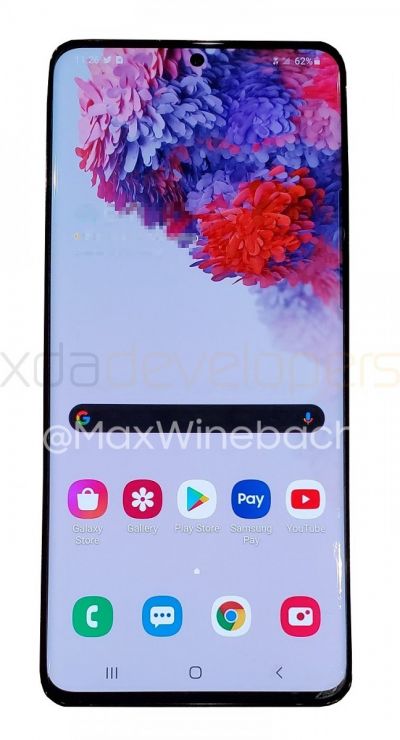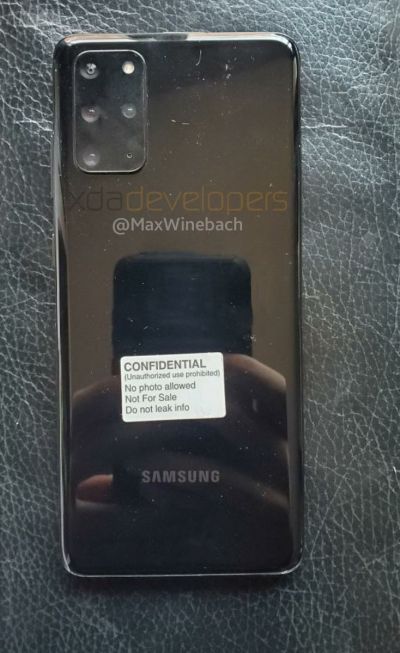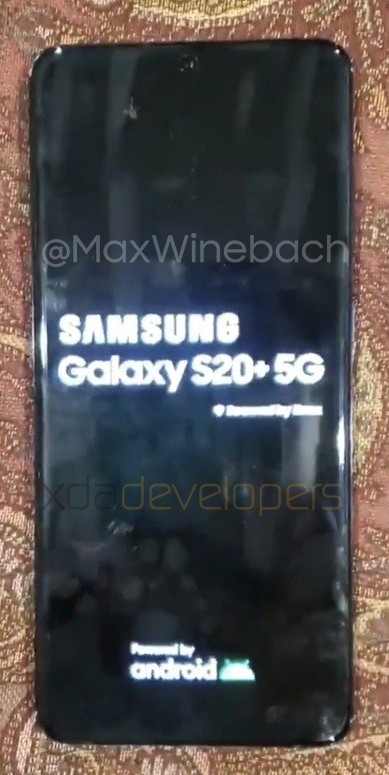Samsung's upcoming flagship smartphone series – Galaxy S20 aka Galaxy S11– is turning out to be one of the most leaked smartphones just before its launch. Recently, we saw pictures of the purported Galaxy S20+ in the wild and we're quite impressed.
We also now know that Samsung will be equipping its Galaxy S20 series with super smooth 120Hz displays, and just the other day a tipster also revealed the camera specs of the Galaxy S20 Plus and the Galaxy S20 Ultra, and we're now getting to see the camera specs of the regular Galaxy S20. All in all we can now safely say that we know almost everything regarding the Galaxy S20 series.
Galaxy S20 camera specs leaked
Before we dive into further details, let's first deal with the latest rumor that comes from perhaps the most reliable Samsung tipster, Ice Universe, who tweeted the alleged camera specs of all the three phones in the Galaxy S20 series.
According to the leaker, the Galaxy S20 will feature a triple camera setup comprising a 12MP main camera, a 64MP telephoto camera and a 12 MP ultra wide-angle lens, while the setup remains the same for the Galaxy S20 Plus, except for the addition of a Time-of-Flight (ToF) sensor. The Galaxy S20 Ultra seems to be in a league of its own, featuring an ultra high-resolution 108MP primary camera, a 48MP telephoto lens, a 12MP ultra-wide angle lens and a ToF sensor.
As you can see, the higher variants i.e., Galaxy S20 Plus and Galaxy S20 Ultra, feature a quad camera setup which includes a ToF sensor. However, the regular Galaxy 20 will miss out on the ToF sensor, which isn't a huge deal breaker at all.
108MP primary camera and 100x zoom in Galaxy S20 ultra
What's surprising though is that the telephoto sensor on the Galaxy S20 and Galaxy S20 Plus has a higher megapixel count than that on the Galaxy S20 Ultra (64MP vs. 48MP). But as we all know, megapixel count has very little to do with the overall camera picture quality and performance.
The 64MP Samsung ISOCell S5KGW2 sensor on the Galaxy S20 and S20 Plus is said to offer 3x optical zoom and 30x digital zooming, while the Galaxy S20 Ultra's 48MP telephoto sensor is said to offer superior zooming capabilities, by allowing up to 10x optical zoom and a whopping 100x hybrid zoom.
The Galaxy S20 Ultra is also the only phone in the series to feature an ultra high-resolution true 108MP sensor as the primary sensor, so that's another thing that we need to consider.The camera specs of the Galaxy S20 Ultra are quite impressive indeed and the phone could end up being crowned the best camera smartphone till now.
Support for 8K video recording
Another report from XDA Developers suggests that the Galaxy S20 Plus will support 8K video recording at 30fps and both the front and rear cameras will support 4K video at 60fps with video stabilization aided by EIS and OIS. However, the Galaxy S20 Plus doesn't seem to support 4K HDR videos at 60fps.
More camera modes and features
Additionally, Samsung will likely add several new camera modes and functions in the Galaxy S20 series phones, including a feature called 'smart selfie angle' which automatically switches the selfie camera to wide angle when it detects more than two people in the frame.
120Hz displays for all three phones
Camera specs aside, another major upgrade the Galaxy S20 series will bring over the outgoing Galaxy S10 series is 120Hz displays. As per numerous rumors and reports, the Galaxy S20 is expected to sport a 6.2-inch Super AMOLED display.
The Galaxy S20 Plus will have a 6.7-inch and the Galaxy S20 Ultra a 6.9-inch screen. All three displays will have QHD+ resolution and for the first time in a Samsung Galaxy smartphone, 120Hz display, but there's a small catch.



No 120Hz at Max resolution
According to a tweet from Ice Universe, Samsung won't allow you to use the 120Hz mode while the display resolution is set at QHD+, meaning the 120Hz refresh rate won't work beyond full-HD+ resolution on the phones. The refresh rates are capped according to the resolution and they are FHD at 60Hz, QHD+ at 60Hz and FHD at 120Hz.
Although it is a little disappointing that we cannot use 120Hz at the phone's maximum screen resolution, it is a sensible decision by Samsung to save the phones' batteries from draining too quickly, as 120Hz display combined with the high resolution will require more battery juice than normal.
12GB RAM standard across all three models
Another big upgrade will be the 12GB LPDDR5 RAM which all three S20 models will ship with coupled with either the Exynos 9830 or Snapdragon's latest and greatest 865 SoC depending on the region.
All-in-all, the Galaxy S20 series is turning out to be an impressive package and we will know the authenticity of all the rumors on February 11, when Samsung finally takes the wraps off of the Galaxy S20 at a special Unpacked event in San Francisco. So, stay tuned.









